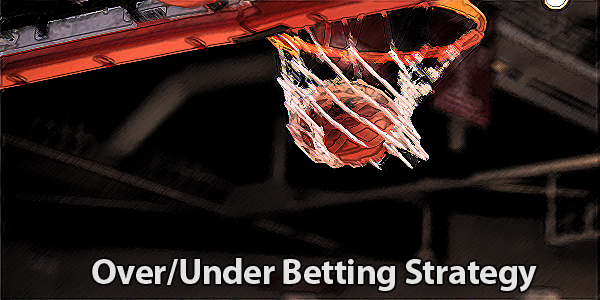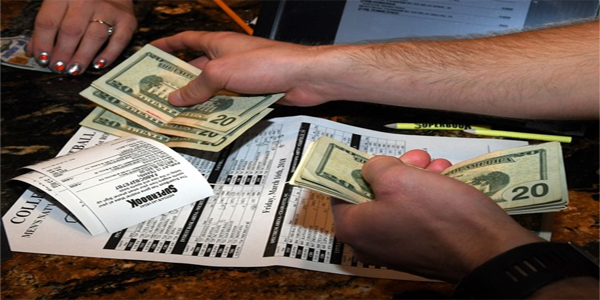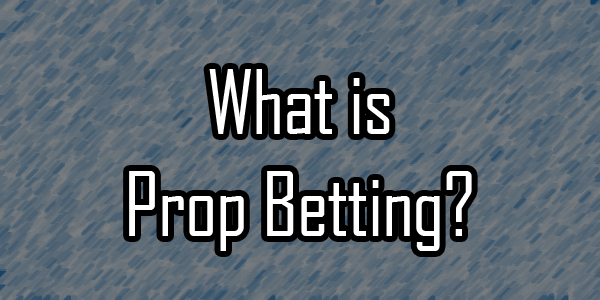Who’s gonna win the Super Bowl?
It’s a question we are all asked, gambler or not, by our spouse, parents, siblings, even the barista at Starbucks. And that question starts a fun discussion a lot of the time. Everyone’s got an opinion.
As a gambler, you also have the ability to back that opinion with cash. And that’s where the futures market comes into play.
The fun of those discussions, of who will win each sport’s ultimate prize, is part of what makes the futures markets so much fun to bet into as well. So much of the time, betting spreads or totals is less about who you think will win and less about fun conversation, and it becomes more about line value, line movement, and the spot for each team. One of my favorite parts about discussing the futures markets is it taps into the same fun part of brain that we use to talk sports with our friends.
When it comes to futures, a couple things to start, that I think are of paramount importance:
–Whatever future you are interested in betting, you will most likely find a better price online than you will at a brick-and-mortar casino with a sportsbook. I would avoid the brick-and-mortar in almost all situations, unless you’ve run the comparison and it benefits you to bet live. Casino sportsbooks build in more of a rake when they set their prices, which removes a lot of the value to you, the bettor.
–When we are talking about activity involving futures, it really boils down to two categories: You are either holding futures or you are trading futures.
Holding
This is the one that’s more about who you think will win. Basically, you are running an analysis of, for example, a team’s chances of winning the NBA title. You come to the conclusion, based on your analysis, that the team’s likelihood of winning the title is greater than the price that is offered. Let’s take the Warriors for example. You determine that there’s a 65 percent chance they win the title this season. Based on that number, the Warriors price should be about -185. You find a price that is -150 in an offshore book, and decide to bet it. Maybe the Warriors win, maybe they don’t, but your analysis has yielded what you think is a +EV bet. The action is over, and now you wait for the result to be determined.
Trading
This is much more high-volume, and much less about anything involving who will actually win the title. In this situation, you don’t need the team to achieve the desired result to profit, you just need the market to change it’s opinion of this team strongly enough that you can lock in profit.
In that example above, you buy the Warriors at -150 because you have determined that they have a particularly easy stretch of their schedule coming up, and their primary opposition, Houston, has a particularly difficult one. 15 games from now, you think it’s likely the Warriors will be -250, at which point you will either add another team who has gained value, or visit a book like 5Dimes or others who offer field bets vs. those teams. You would take Field vs Warriors +210 in this situation, you’d be holding -150 and +210 on each side, and you would guarantee profit. The transaction is concluded. It does not matter whether Golden State wins anything the rest of the season.
An example, from personal experience. Bovada had Virginia listed at 33/1 to win the NCAA Basketball title early in the season. As a rule, I am looking to fade Virginia in pretty much every significant tournament situation each year, but again, this isn’t about who I think will win. Virginia’s metrics, talent, and coaching led me to believe this price was likely to drop, and that Virginia had a reasonable shot at a 1 or 2 seed. If I was correct, a series of hedges would be made available to me around tournament time to allow me to lock in profit, and conclude the transaction. For example, I could bet the field vs Virginia to win their region, and then depending on that price, and your risk tolerance, you would only bet Virginia in the Final Four and the Championship Game, and you’d reach the end of this problem. Here is an example in list form of what I am talking about:
Initial investment: $100 at 33/1 (profit: $3,300)
Field vs #1 seed Virginia to win region: $400/$200 at -200 price
Team X vs Virginia in Final Four (highly unlikely to be a dog of more than 2-3 pts vs. any team, and more likely a favorite, let’s call them +100 in these situations): $700/$700 at +100
Team X vs Virginia in National Championship Game: $1,450/$1,450 at +100
Here would be your profit at each step of the process:
Another team wins Virginia’s region: +$100
Virginia wins their region, then loses in the Final Four: +$200
Virginia advances to the title game but loses: +$250
Virginia wins the title: +$750
Now, a few things. This is a really easy example to digest, which is the point. The price could change each step of the way, due to injuries or other factors, which would cause you to re-assess your strategy. I also back-loaded the payout of Virginia winning the title compared to the other steps in the process, which you don’t have to do. Maybe you hate Virginia’s chances of winning, and want more of your money up front. Maybe Virginia’s price to win their region never gets as low as you need it to create a framework for this type of profit (In that case, you could sweat Virginia in their first 2 games, and bet the same thing the 2nd weekend when the prices adjust).
Again, this is more about the plan than the amounts. You fill in the amounts you’re comfortable with. As a rule, I am trying to at least double my original investment in any future I am trading (so in this case, I would want to make at least 100 dollars).
Hopefully this helps provide a useful guide of how you can approach futures from a couple different perspectives.






